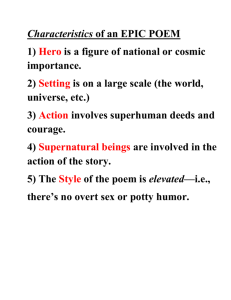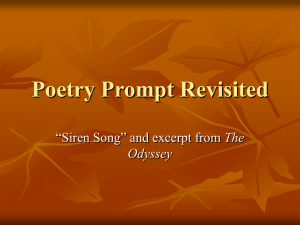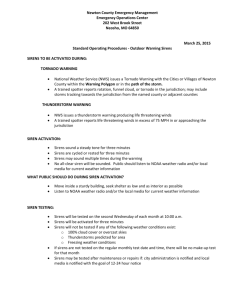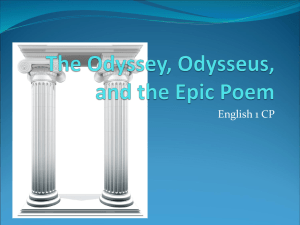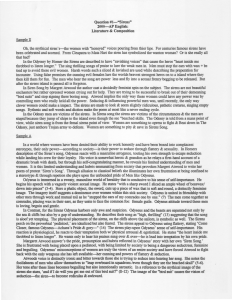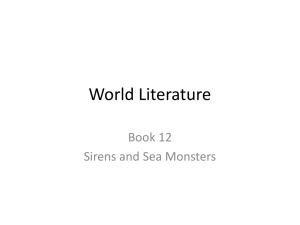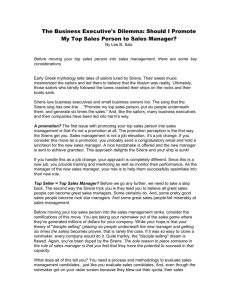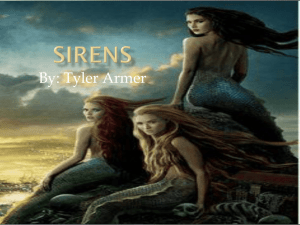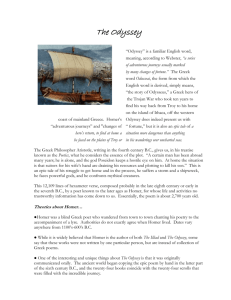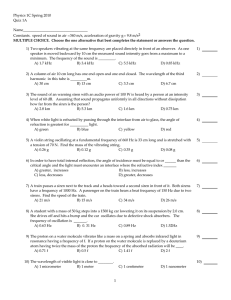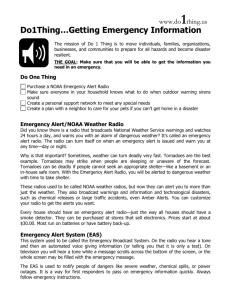More Reminders for Writing Introductions
advertisement
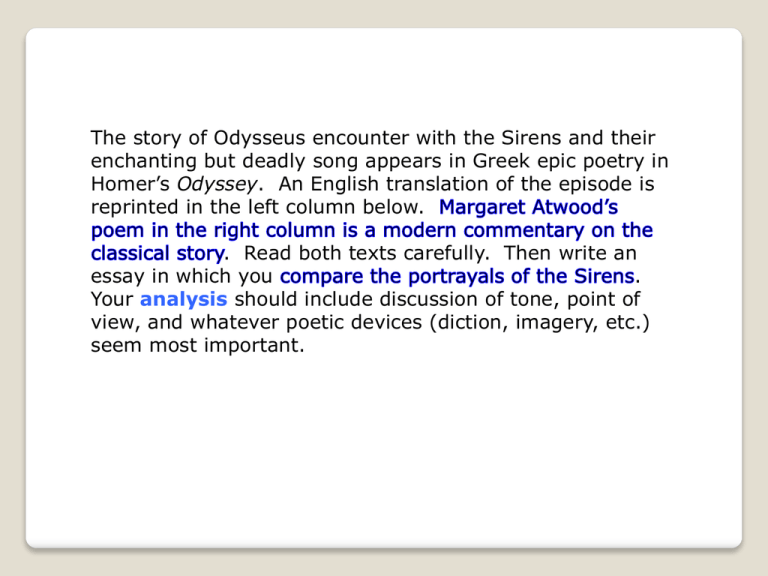
The story of Odysseus encounter with the Sirens and their enchanting but deadly song appears in Greek epic poetry in Homer’s Odyssey. An English translation of the episode is reprinted in the left column below. . Read both texts carefully. Then write an essay in which you . Your analysis should include discussion of tone, point of view, and whatever poetic devices (diction, imagery, etc.) seem most important. Introduction Reminders • Cut to the chase! No need for historical, broad literary backgrounds. Don’t stray from the terms of the prompt. (In this case, open with a comment about sirens specifically, not the heroism of Odysseus, or how mythology endures through the ages.) Keep your intro “economical”. • Lay down the context: Briefly set out the topic, identify the full name(s) of the author(s) and title(s) of their work. • Address the concept required by the prompt: Margaret Atwood’s modern commentary on the sirens compared to original story. • the Connect the dots, so to speak, in your thesis statement – how literary devices– especially point of view and tone – add up to the meaning you see when comparing the two poems. (Don’t just say the poems use certain literary devices. This will take you into a descriptive rather than an analytical, interpretive essay.) Avoid starting with “In the . . .” when it leads to passive voice. Passive Voice: In Homer’s epic poem, the Odyssey, and Margaret Atwood’s poem, “Siren Song”, the sirens are described with a first person point of view and an urgent tone. Active Voice: In Homer’s epic poem, the Odyssey, and Margaret Atwood’s poem, “Siren Song”, the sirens are described describe the sirens with a first person point of view and an urgent tone.
